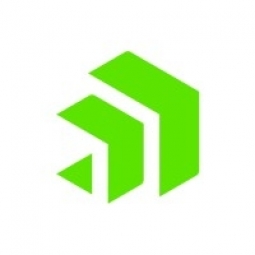Customer Company Size
Large Corporate
Region
- Europe
Country
- Austria
Product
- MarkLogic Enterprise NoSQL database platform
- SmartLogicTM Ontology Manager
Tech Stack
- NoSQL
- Ontology Manager
Implementation Scale
- Enterprise-wide Deployment
Impact Metrics
- Revenue Growth
- Productivity Improvements
- Customer Satisfaction
Technology Category
- Platform as a Service (PaaS) - Data Management Platforms
- Application Infrastructure & Middleware - Database Management & Storage
Applicable Functions
- Sales & Marketing
- Business Operation
Services
- Data Science Services
- System Integration
About The Customer
HEROLD Business Data GmbH is one of the most successful media companies in Austria, offering a marketplace for buyers and sellers through online and print phone directories. The company produces dozens of print products, including more than 70 regional telephone directories and more than 20 special issues and guides, as well as several online products, including HEROLD.at, mobile applications, data for direct marketing, search marketing and online advertising services. HEROLD Business Data collects data on 360,000 businesses, including addresses and phone numbers, user reviews and recommendations, ratings, photos, and text descriptions, as well as a directory of 3.6 million phone numbers. HEROLD.at is one of the biggest sites in Austria, reaching more than 23 percent of active Internet users in the country.
The Challenge
HEROLD's initial challenge was to quickly monetize enormous amounts of addresses, household and corporate data that it acquired from purchasing a directory business. The company was seeking a better way to connect its customer-the businesses that advertise with it -with user of its digital properties, therefore HEROLD needed to create new digital products that could summarize and structure HEROLD's data assets so it could be productized and resold. Additional challenges included: Integrating and Managing Complex and High Volumes of Data. Integrating, accessing and searching the massive amounts of acquired personalized and address data could not be accomplished with HEROLD's existing relational database technology. Much of HEROLD's company data resided in as many as 15 separate systems and included records on more than 360,000 businesses, comprising of unstructured pieces such as product information, user reviews and recommendations, ratings, photos and text descriptions, which came from product feeds and manual entries. Aggressive Timeline to Demonstrate Return on Investment. HEROLD needed to integrate the newly acquired structured and unstructured data into its systems to quickly create and introduce new products that would help them stay ahead of the competition while demonstrating return on investment to management.
The Solution
With the help of MarkLogic partner EBCONT Enterprise Technologies, HEROLD used the SmartLogicTM Ontology Manager to organize its data and import it into the MarkLogic Enterprise NoSQL database platform. The company relies on MarkLogic with its built-in search, and semantics features to power three applications: a targeting and direct marketing product, a customer statistics and analytics product for internal use, and a hosted product search, maintenance and fulfillment solution.
Operational Impact
Quantitative Benefit

Case Study missing?
Start adding your own!
Register with your work email and create a new case study profile for your business.



